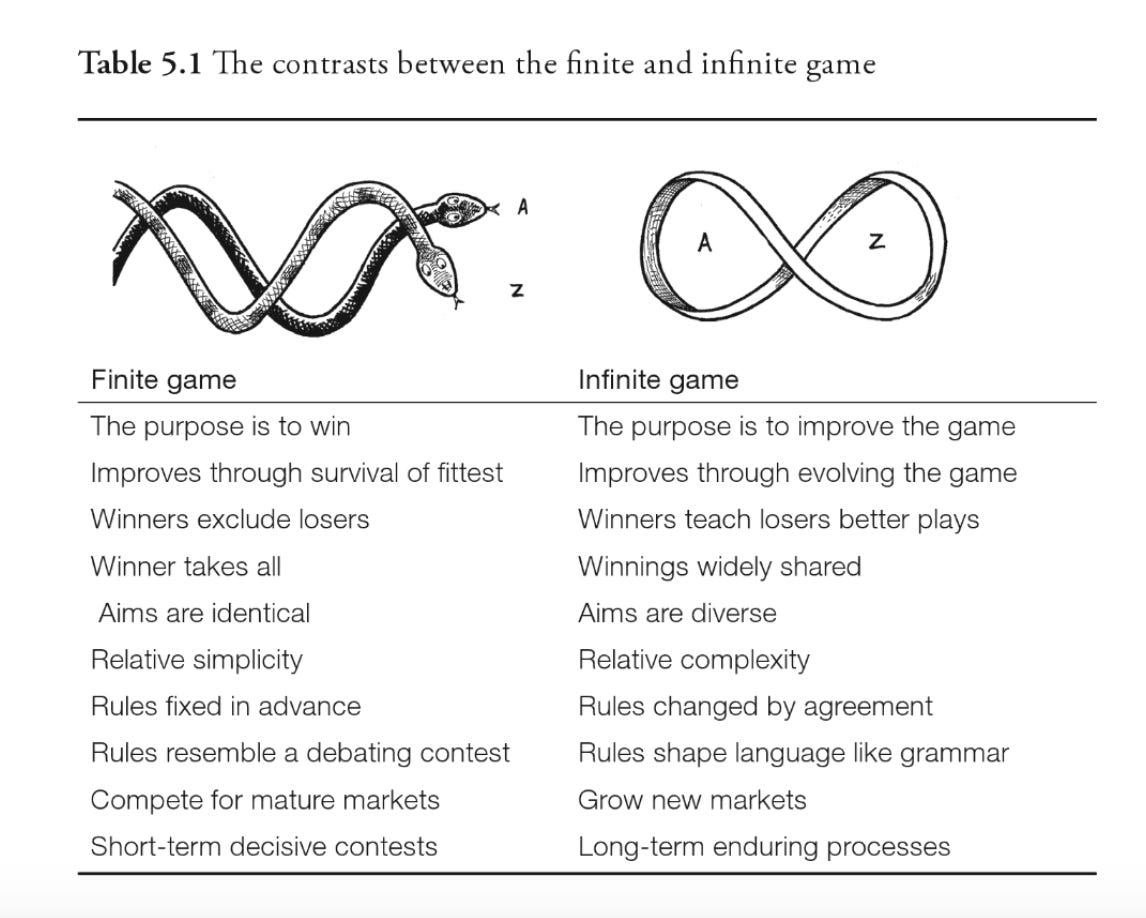Omnipedia #8
MOMA in the blender, some *much* better rules for living (than Jordan Peterson's), mediocre computing and grizzled Lunarpunks, alongside other sparkly things
To close the year on this Substack - which has been quite a rollercoaster - here’s a last Omnipedia for 2022. The internet can still be sieved, and nuggety signs and wonders discovered. Here’s some.
🪩Embedded at the head of this post, reported on gushingly by Fast Company, is a showing of Refik Anadol’s Machine Hallucinations (from its Berlin show). At MOMA in New York, the AI has been “trained on 180,000 works, from Warhol to Pac-Man”. It generates its own variations on the corpus, taking additional input from “the motion of the visitors, captured by a camera set in the lobby’s ceiling. Then, it plugs into Manhattan’s weather data, obtained by a weather station in a nearby building.”
Initially impressive. But do I want the traditions and singularities of modern art put in an algorithmic blender, coming out not so much with a startling machine intelligence, but a slightly nauseating hyper-smoothie? Ehm, maybe I don’t
👩🏻⚖️12 Much Better Rules For Life (blog and YouTube interview) is an insolent riff on Jordan Petersen’s 12 Rules, by that playful, metamodern, composite philosopher Hanzi Freinacht). Some rules clearly requiring some background explanation… Worth comparing:


🍃Jason Snyder is an extremely thoughtful farmer in Appalachia, and intersperses deep eco-thought with picture of strawberry patches on his Twitter. Note his tech recommendations in the embedded tweet below, and look up the ones you don’t know. (I would add the sea-salt battery).

🤖🤖🤖 This is a somewhat mind-wrenching essay from RibbonFarm’s Venkatesh Rao (which you can read on a seven-day free trial). It tries to imagine computing as an infinite game (drawing on James Carse’s idea, long beloved to me, that a finite game is one aimed at winning; an infinite game is one aimed at continuing, extending and widening the play). There’s some lovely stuff here around what Rao calls “mediocre” computing, which - like humans - aims at good-enough results:
We [humans] generally operate with less than 100% effort and try to accept whatever results we get as good-enough, and if it isn’t, we typically try to change the rules of the game we’re playing in some way rather than try harder… Translated to computing terms, we operate with a healthy margin of reserve computing power when solving problems because we expect to continue playing indefinitely, and don’t know what the demands of futures in very different regimes will be. In other words, we play in infinity-aware ways which leads to mediocrity as the standard, rather than excellence.
This is very similar in feel to what the neuroscientist Antonio Damasio speaks of in his book on homeostasis in organisms, The Strange Order of Things. Damasio actually prefers the term homeodynamics - meaning that the best option for survival is to actually keep “a healthy margin of reserve” (in energy, through play), so that you can adapt to surprises and generate options - “the demands of futures in very different regimes”.
Note also this Atlantic piece from the game theorist Ian Bogost, urging us to think of the infernal ChatGPT as “a toy not a tool”:
The AI doesn’t understand or even compose text. It offers a way to probe text, to play with text, to mold and shape an infinity of prose across a huge variety of domains, including literature and science and shitposting, into structures in which further questions can be asked and, on occasion, answered.
GPT and other large language models are aesthetic instruments rather than epistemological ones. Imagine a weird, unholy synthesizer whose buttons sample textual information, style, and semantics. Such a thing is compelling not because it offers answers in the form of text, but because it makes it possible to play text—all the text, almost—like an instrument.
Behaviourally, the most extraordinary interview: the man seems to be constantly relearning how to sit in his own chair, as discomfiting as the eponymous Dr. Strangelove. And he’s almost dishevelled in appearance. But this is Alex Karp, co-founder of Palantir, kings of AI surveillance and military logistics, shilling for his company on Bloomberg. Karp is properly Mephistophelian - a PhD on Theodor Adorno (under Jurgen Habermas), but then applying his intellect to building an instrument of ultimate surveillance.
He seems to be a software patriot: America isn’t just capable of “entertaining the world”, it can engage in “adaptive warfare against a large adversary that’s willing for their troops to die.” Hard to know whether to draw from Schmitt or Nietzsche, in parsing this. But Karp is a technocratic warrior, as dangerous as I’ve seen from any geopolitical cadre.
🧠 🧠 🪖🪖On a similar theme, I keep coming back to this extraordinary attempt (from the Yale Review) to use psychoanalytic practice to understand the reality-bending strategies of Putin and Trump.
In November 2021, after six years spent leading covert operations to destabilize Ukraine and masterminding the emergence of the self-styled separatist “republics” in the Donbas, Surkov wrote an article conceptualizing these operations as the simple logic of “physics,” specifically the law of entropy formulated by James Clerk Maxwell.
In 1999, Surkov writes, Putin inherited a country and system running headlong into entropic decay and chaos and stabilized its economy and governance. “But,” he continues, “if the second law of thermodynamics is true (and it is true),” then entropy can never be conjured away; it is in the nature of every closed system to generate entropy, raising the question of what to do with it.
Surkov’s answer is, as he openly acknowledges, the cynical recourse of every struggling empire: export the chaos elsewhere. The “socially toxic” entropic energies aroused by and against Putin’s regime have been diverted to Ukraine, in Surkov’s new iteration of a venerable imperial strategy: “Exporting chaos is nothing new. Divide and Conquer is an ancient recipe…Rally your own + divide others = you will rule both.”
It’s worth noting the sharp conceptual affinity between the entropy in physics that Surkov is fascinated by and the concept of unbinding in psychoanalysis. Both terms describe the capacity of destructive forces, whether physical or psychic, to tear a hole in the system of representation and knowledge. Putin’s regime is the vanguard of a growing global enterprise to capture and enlist unrepresented rage to aggrandize the power of the nation and direct it against whatever object the regime chooses.
When I was the “editor” for the International Futures Forum in St. Andrews, Scotland in the early 2000s, I recall the philosophy professor Alexander Brodie telling us how Adam Smith, the great figure of the Scottish Enlightenment, used to wander to the dockside in Glasgow. He was observing how markets and traders operated, and would then return to integrate these observations into his work.
I often feel that’s happening hugely around tech sectors at the moment - particularly Web3, decentralised software and crypto. Arrangements of software, and the commitments they bind people and materials to, seem to imply questions of political philosophy almost spontaneously. For the joint-stock company of the past, read the DAO (decentralised autonomous organisation) of the present.
So this article from CoinDesk, the crypto news platform, wondering what the difference is between Lunarpunk and Solarpunk, is more than a disquisition between SF nerds. Lunarpunks seem to be more weathered Solarpunks, more alive to the problems of state power, as surveillant and controlling. Yet Solarpunks “live fully in the future”, able to join the dots up between contending forces. Something also makes me happy about discussions of how these genres shape the “Web3 aesthetic”. One can’t imagine the grim warriors on Bloomberg worrying much about aesthetics - other than to derogate it.
Of course there are scores more references to share, but the pounding insistence of Christmas conviviality is upon me…
Thanks so much to all of you who’ve signed up, and those who have actively supported this site financially - it literally buys the time to make it happen. If you want to, hit the subscribe now button below - there’s three clear options.
Have a beautiful and restorative season! (Maybe another section of SUPERPLAY will be completed over these contemplative days.) But in any case, full service again early January.
Ad astra, PK





